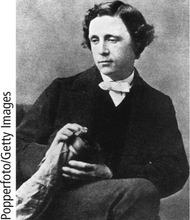10.1 The Manipulability of Voting Systems 10

- 10.1 An Introduction to Manipulability
- 10.2 Majority Rule and Condorcet's Method
- 10.3 The Manipulability of Other Voting Systems
for Three or More Candidates - 10.4 Impossibility
- 10.5 The Chair's Paradox
People know almost by instinct that you sometimes can achieve the election result you prefer by submitting a ballot that misrepresents your actual preferences. This type of strategic voting is called manipulation, and a ballot that misrepresents a voter's true preferences is referred to as an insincere or disingenuous ballot.
All three of these terms—manipulation, insincere, disingenuous—are widely used in the social-choice literature, but in daily life, we use these terms pejoratively; they aren't exactly warm praise. In fact, your choice to manipulate a voting system typically is no more inherently evil than your submission of a sealed bid for a lamp at an auction at a price considerably below its actual worth. Strategyproof—a term with considerably less negative content—is sometimes used in place of nonmanipulable, but the latter is more common, so we'll stick with it here.

Historical references to the manipulability of voting systems include a comment by 19-century mathematician C. L. Dodgson (1832–1898), better known by the pseudonym Lewis Carroll, under which he wrote Alice's Adventures in Wonderland (1865). Dodgson commented that voters have a tendency to "adopt a principle of voting which makes it more of a game of skill than a true test of the wishes of the electors" and that it would be "better for elections to be decided according to the wishes of the majority than of those who have the most skill at the game."
But the most famous manipulability quote in the history of social choice is Jean Charles de Borda's reply to a colleague who had pointed out to him how easily the Borda count can be manipulated. "My scheme," Borda replied, "is only intended for honest men!"
Do there exist other "schemes" that need not be intended for just "honest men"? How do the voting systems we saw in Chapter 9 stack up when it comes to manipulability? And is there an impossibility result—like Arrow's theorem—lurking out there? We shall see.